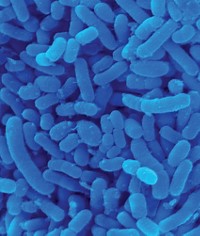Advertisement
Grab your lab coat. Let's get started
Welcome!
Welcome!
Create an account below to get 6 C&EN articles per month, receive newsletters and more - all free.
It seems this is your first time logging in online. Please enter the following information to continue.
As an ACS member you automatically get access to this site. All we need is few more details to create your reading experience.
Not you? Sign in with a different account.
Not you? Sign in with a different account.
ERROR 1
ERROR 1
ERROR 2
ERROR 2
ERROR 2
ERROR 2
ERROR 2
Password and Confirm password must match.
If you have an ACS member number, please enter it here so we can link this account to your membership. (optional)
ERROR 2
ACS values your privacy. By submitting your information, you are gaining access to C&EN and subscribing to our weekly newsletter. We use the information you provide to make your reading experience better, and we will never sell your data to third party members.
Biological Chemistry
Human Placenta Has Microbiome
Microbiology: Bacterial colony makeup may affect pregnancy outcomes
by Elizabeth K. Wilson
May 26, 2014
| A version of this story appeared in
Volume 92, Issue 21
Long thought to be an oasis in a body otherwise colonized by microorganisms, the human placenta in fact harbors its own unique microbiome. The discovery may help answer questions about how newborns are colonized by microbes and also suggests that the placental microbiome influences pregnancy outcomes (Sci. Transl. Med. 2014; DOI: 10.1126/scitranslmed.3008599 ).

Kjersti Aagaard, professor of obstetrics and gynecology and molecular and cell biology, and colleagues at Baylor College of Medicine examined samples from 320 placentas. They discovered that, just like other areas in the human body such as the gut, skin, and oral cavities, the placenta contains diverse populations of benign bacteria from numerous phyla, including Firmicutes, Proteobacteria, and Fusobacteria, albeit in low abundance.
“This is a heroic study,” says Willem M. de Vos, microbiology professor at Wageningen University, in the Netherlands. “The findings are of significance as there is great interest in understanding how a newborn is colonized.”
Surprisingly, the placenta microbiome does not resemble other microbiomes such as those from the gut and vagina. Instead, the placenta microbiome most closely resembles that of human oral microbiomes.
The group also found placental microbiome differences between preterm and full-term deliveries. In addition, the group found that differences in the microbiome correlated with a history of urinary tract infections and periodontal disease in the pregnant women. These infections have long been known to be correlated with preterm deliveries.
Indira Mysorekar, professor of obstetrics and gynecology and pathology and immunology at Washington University School of Medicine in St. Louis, says the discovery of a placental microbiome is not in itself surprising, given that her group has seen bacteria species at the maternal-fetal interface of the placenta.
But the finding that urinary tract infections or periodontal infections may alter the placental microbiome could help explain why those infections are associated with adverse pregnancy outcomes such as preterm birth, she says. “This link is very exciting.”





Join the conversation
Contact the reporter
Submit a Letter to the Editor for publication
Engage with us on Twitter